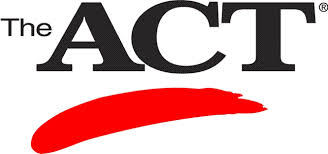Changes to the ACT Test in 2015

The ACT has announced it will be making changes in 2014 and 2015 to remain relevant to colleges and universities. The five major changes are listed below.
- Changes to the Writing Test.
The writing test will still be optional, but in 2015 it will emphasize student ability to evaluate multiple perspectives on a complex issue and generate an analysis based on reasoning knowledge and experience. The scoring will be changes from a single score reporting to an analytic reporting or four domain scores: ideas & analysis, development and support, organization and language use. This will provide better information about college and career readiness.
- Optional Constructed Response Questions
ACT will offer schools a separate constructed-response battery of questions as an option to supplement the traditional multiple-choice sections of the ACT. Constructed-response questions require students to enter their own answer, rather than selecting the best answer from several given choices.These questions will allow schools, districts, and states to better align their reporting with the Common Core State Standards.Constructed-response results will NOT be included in the ACT Composite score because they are optional.
- ACT Offered on the Computer.
In April 2014, ACT offered the first-ever computer-based administration of a national undergraduate college admission exam with college-reportable scores. Approximately 4,000 high school students across the United States participated in this administration. The digital version of the ACT will be offered to select schools that participate in state and district testing starting in 2015, with expanded release as an option for ACT state and district testing in spring 2016.
- New Readiness Scores and Indicators
The new readiness scores and indicators will give students, parents, and educators more detailed insights to better plan for future success. They include:
- STEM Score—This score will represent the student’s overall performance on the science and math portions of the exam.
- Progress Toward Career Readiness Indicator—This measure will help students understand their progress toward career readiness and help educators prepare their students for success in a variety of career pathways.
- English Language Arts Score—This score will combine achievement on the English, reading, and writing portions of the ACT for those who take all three sections, enabling students to see how their performance compares with others who have been identified as college ready. A student must take the optional Writing Test to receive this score.
- Text Complexity Progress Indicator—This indicator will tell students if they are making sufficient progress toward understanding the complex texts they will encounter in college and during their careers.
- New Reporting Categories
For 2016, ACT has planned an expanded number of reporting categories, compared to the current sub-score categories, with breakdowns provided for every subject. The reporting categories are based on the ACT College Readiness Standards and are aligned to the Common Core State Standards. The additional information will make it easier for students, parents, and educators to understand the makeup of any subject score and see their strengths and areas for improvement.
Success Prep provides both in class and online ACT Prep classes. Click ACT Prep Classes to learn more





